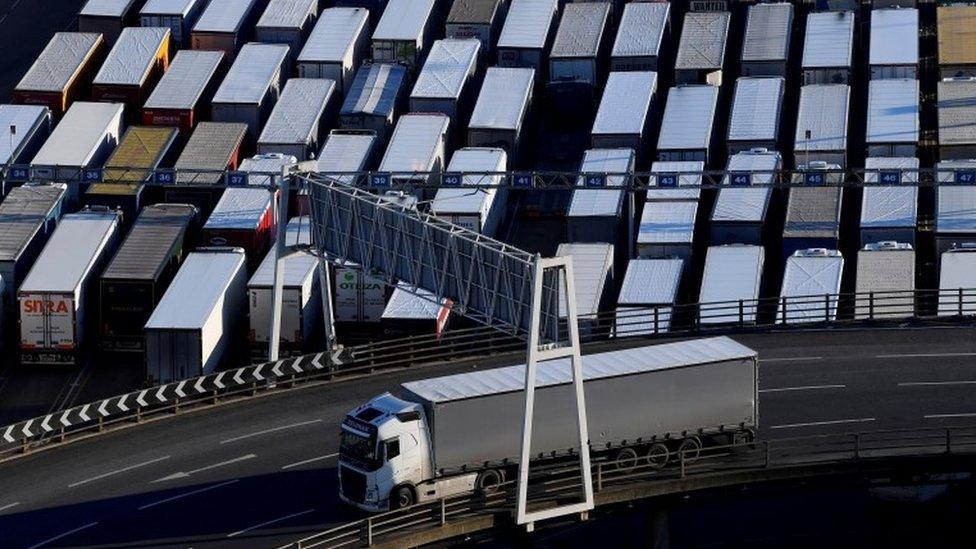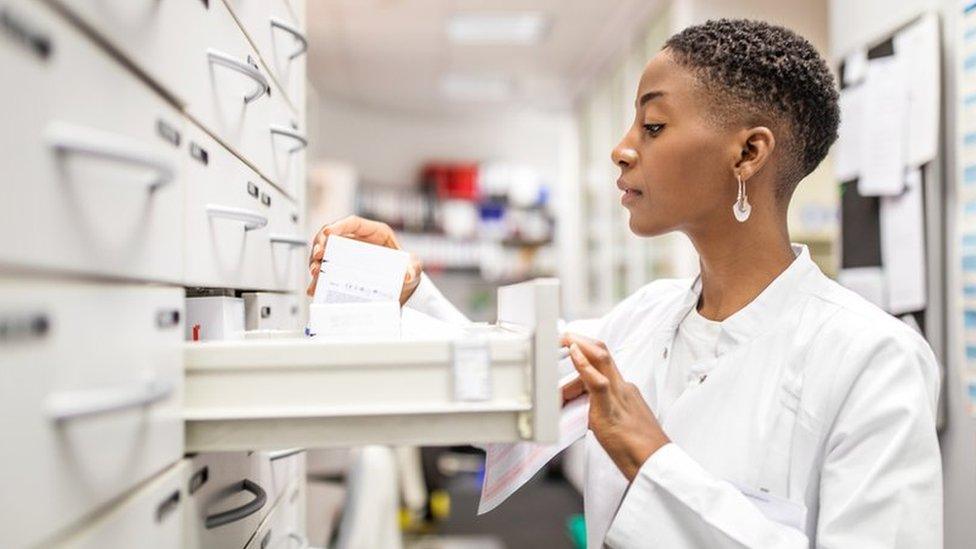Brexit: Health leaders issue new no-deal warning
- Published

Health leaders have written to Boris Johnson issuing new warnings on the impact of a no-deal Brexit.
In a letter to the prime minister, the heads of 17 royal colleges and health charities across the UK say clinicians are "unable to reassure patients" their health and care will not be affected.
They go on to say they have "significant concerns about shortages of medical supplies".
Government said it was working with the health sector on "robust preparations".
The letter, co-ordinated by the Royal College of Physicians, is signed by the heads of organisations including the British Dental Association, the Royal Pharmaceutical Society, Kidney Care UK and the Royal College of Emergency Medicine.
It calls for the Health and Social Care Secretary Matt Hancock to be put on the EU exit strategy committee chaired by Michael Gove, who is in charge of no-deal planning.
The signatories argue that - given the scale of the NHS - without sufficient planning, even the smallest of problems could have "huge consequences on the lives of millions of people".
And they say: "The public rightly expects candour from us, and we are simply unable to reassure patients that their health and care won't be negatively impacted by the UK's exit from the EU."
'Vital supplies'
There are also, despite ongoing conversations with the Department of Health and Social Care, "significant concerns about shortages of medical supplies", the letter adds.
"Delays at the border could exacerbate current supply issues and create the very real possibility that life-saving medication is delayed from making it across the Channel."
There have been concerns there will be tailbacks of lorries at Dover and Calais with longer customs checks, if there is a no-deal Brexit.
The government has said it is drawing up contingency plans to create more ferry capacity for medicines and other vital supplies on other routes.
More than two-thirds of the UK's pharmaceutical imports come from the EU.
Last week, the government announced a tender for a £25m contract for express freight services to deliver medicines with a short shelf life within 24 hours.
Pharmaceutical companies have been told to build up stockpiles of six weeks' supply of drugs.
Novo Nordisk, which manufactures insulin, told the BBC it had 18 weeks' worth of supplies in the UK and had secured ferry capacity to renew stocks.
A spokesman for the Department of Health and Social Care said the government was doing "everything appropriate to prepare to leave the EU on the 31st October, whatever the circumstance".
And he said it was working closely with the health and care system and industry on "robust preparations".
"Patients can be reassured that our plans should ensure the supply of medicines and medical products remains uninterrupted and they will continue to receive the excellent standard of care they currently do."
But Saffron Cordery, deputy chief executive of NHS Providers, which represents hospitals and other trusts in England, said: "We are in a very challenging situation 11 weeks out, despite all sorts of planning taking place by health and social care systems.
"I think we need to look at those items which cannot be stockpiled - short shelf life items such as supplies for radiotherapy, things which need refrigeration".
Health leaders have argued elsewhere that the NHS will already be overstretched on 31 October, with winter closing in and the risk that flu cases will increase.
They have noted that there is a virulent strain of flu in Australia, which has put great pressure on hospitals, and what happens there is usually a pointer to what will take place in Europe.
- Published18 August 2019

- Published11 August 2019

- Published20 March 2019


